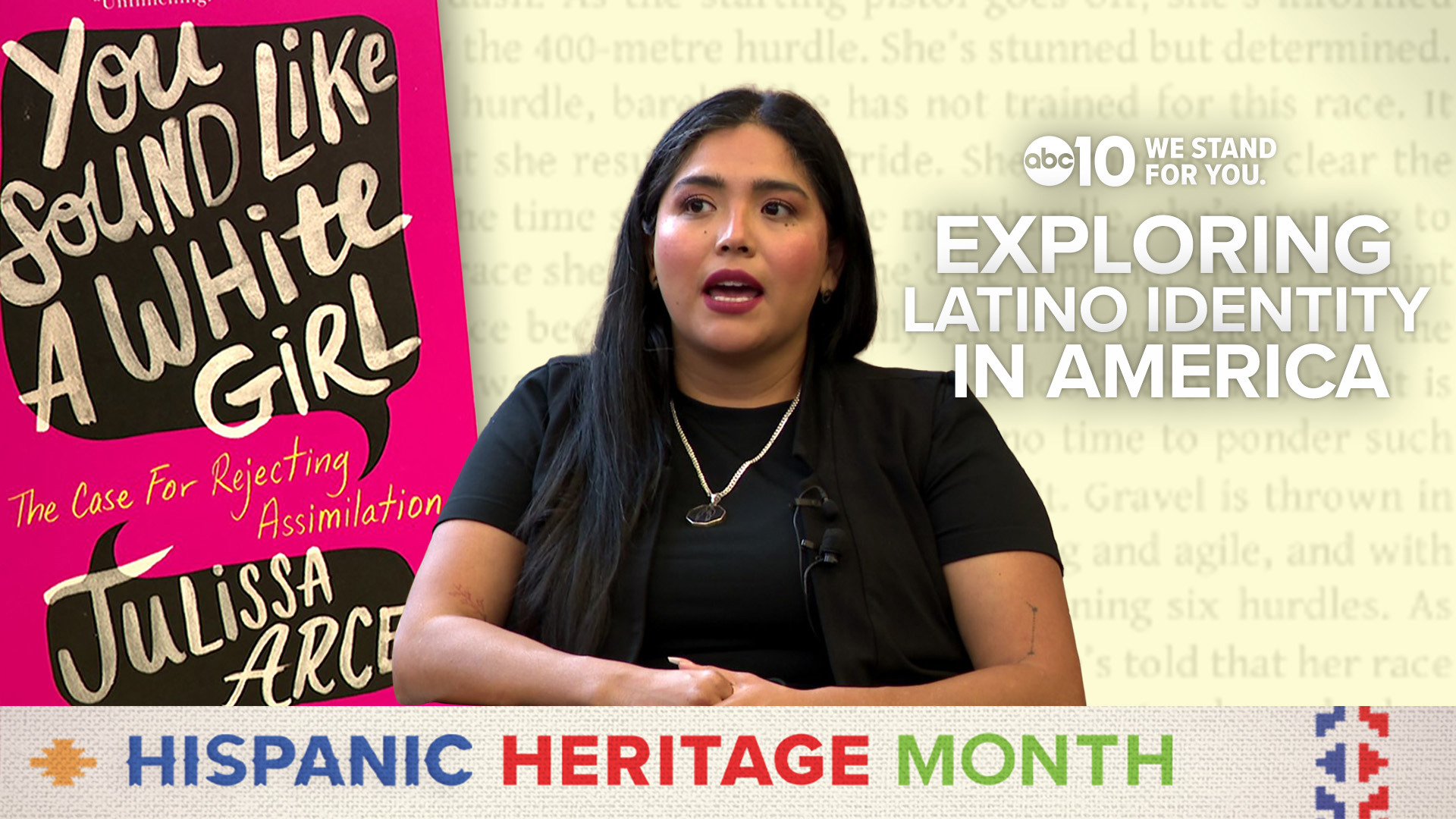SACRAMENTO, Calif. — As we continue to celebrate diversity within our communities, intersectionality and multicultural experiences are becoming key topics of discussion. Nearly 600,000 Hispanic and Latino people live in the Sacramento region, according to the 2023 State of Hispanics report by the Sacramento Hispanic Chamber of Commerce.
Those key topics are also explored in bestselling Mexican-American author Julissa Arce's latest book, "You Sound Like a White Girl." In her book, Arce blends her journey with sharp cultural commentary to challenge the idea assimilation leads to happiness and belonging for immigrants in America.
Recently, Sacramento-based nonprofit Youth Development Network raised funds to bring the author and speaker to American River College as she shared insights from her latest book while discussing what it means to be Latino in America today.
GET MORE RACE & CULTURE FROM ABC10:
►Explore the Race & Culture home page
►Watch Race & Culture videos on YouTube
►Subscribe to the Race and Culture newsletter
"The main message of 'You Sound Like a White Girl' or the thing I want people to come away with is that I want them to walk into every room and feel like they belong there, because they do," Arce shared in an interview with ABC10.
Arce encourages her readers to thrive in their own skin.
"To thrive in my own skin has really meant to be proud of where I come from. To be proud of my people, proud of my history," Arce said.
Arce came to the U.S. as a child and undocumented immigrant from México. As she writes about her childhood, growing up and eventually landing a finance job on Wall Street, she explores racism, hypocrisy and the power of language, especially English.
"There's a passage in 'You Sound Like a White Girl' where I write about my dad sort of shrinking every time he spoke English," Arce said. "It really affected me. It made me feel like, 'What is this language that is doing that to my dad?'"
Arce also shared how the book helped her heal.
"In some ways, yes, I am on this healing journey because it never really ends. You know, you kind of have to keep reclaiming all of these things that sometimes you lose when you assimilate," Arce said.
And part of the struggle for Arce is with identity. She writes about the complexities of identity and pulling back the curtain on what it means to be Latino.
"It's said that Latino is an identity, but not even all Latinos share the same culture. Even the words we use to describe ourselves can cause controversy — is it Latino? Is it Hispanic? Is it Latina, is it Latinx? The biggest thing about Latino identity is that we have to define it for ourselves," Arce said. "So it's complex, but I think that there is a really beautiful thing about coming together as a community even if we don't always agree on what our community should be called."
For her next book, Arce shared she would like to write about motherhood. While it can be a lonely and isolating experience, like writing, she said it doesn't have to be.
Watch more Hispanic Heritage Month stories: Clínica Tepati: Bridging the healthcare gap for Sacramento's Latino community



















